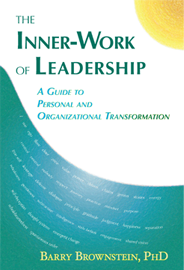We’re told by some pundits that Tiger Woods has a sexual addiction disorder and that he needs to be more actively engaged in repairing his public image. Both conjectures are self-serving. Both are designed to give the pundits more to talk about and to give their audiences cheap thrills and comfort. The cheap thrills come from focusing on someone else’s life instead of our own. The comfort comes from believing that somehow, because he has been labeled an addict by the experts, the human drama in the life of Tiger Woods is fundamentally different from our own.
Polly Berends, in her book Coming to Life, observes, “Day by day, year after year, we live our lives out of certain fundamental assumptions of which we are almost completely unaware. These assumptions govern our lives, yet they are so universal and unquestioned as to be virtually unconscious.” We don’t have to look far for a universal, fundamental assumption that few ever question. The universal human drama throughout the millennia is people doing foolish things, because under their behavior lies an unquestioned and unexplored assumption that something outside—power, money, sex—can fill the emptiness they believe is within.
Woods is perhaps the most famous athlete in the world, he has more money than he could spend in many lifetimes, and he has a beautiful wife. Yet, something was missing; and something within drove him to foolish behavior. Labeling him as an addict with a disorder allows us to dismiss a universal lesson that he is inadvertently teaching. While most of us will never reach such extremes in behavior, we have our own repertoire of coping behaviors to fill what seems to be a universal void. These behaviors may include excessive eating, drinking, shopping, Internet surfing, and television watching. Often we engage in these activities to avoid becoming aware of and then questioning our own faulty assumptions about what we think will make us feel complete.
Our failure to the question our assumptions is all the more remarkable since our coping behaviors never relieve our angst for more than brief intervals of time. In his classic book on addictions, The Diseasing of America, Stanton Peele writes,
One of the key dynamics in the alcoholism or addiction cycle is the repeated failure of the alcoholic or addict to gain exactly the state he or she seeks, while still persisting in the addicted behavior. For example, alcoholics (in research, these are frequently street inebriates) report that they anticipate alcohol to be calming, and yet when they drink they become increasingly agitated and depressed. The process whereby people desperately pursue some feeling that becomes more elusive the harder they pursue it is a common one, and appears among compulsive gamblers, shoppers, overeaters, love addicts, and the like. It is this cycle of desperate search, temporary or inadequate satisfaction, and renewed desperation that most characterizes addiction.
But what are we hoping our coping behavior will do for us? Berends writes, “All compulsive behaviors make sense in relation to some perceived threat to self survival. It is impossible to give up an impulsive behavior until the underlying perception of threat is faced and seen to be false.” Berends echoes the perennial spiritual wisdom when she explains the origin of our pleasure seeking: We are afraid. She writes, “Afraid? Of what? Feel it. What is it? Fear and separateness. Separateness and fear. These occur together.”
Separateness? Berends writes, “The threat is always of some separation—from job, boss, financial support, family, spouse, from psychological and emotional outreach and support—from whatever you see as your interpersonal life-support system … Whenever something makes you doubt your viability, a desire to make some connection is triggered.” In other words, we seek unreliable and false ways to fill empty, inner void—a void of which we often don’t let ourselves become aware.
But what if the void that we do not let ourselves feel is itself not real? Again, echoing the perennial spiritual wisdom, Berends tells us, “The basic idea that we are separated and disconnected, from each other and from everything else, is the one idea we have not examined.” You may not have examined your belief in separation, but others have, and they assure us it is false. For instance, Einstein wrote,
A human being is part of a whole, called by us the Universe, a part limited in time and space. He experiences himself, his thoughts and feelings, as something separated from the rest a kind of optical delusion of his consciousness. This delusion is a kind of prison for us, restricting us to our personal desires and to affection for a few persons nearest us. Our task must be to free ourselves from this prison by widening our circles of compassion to embrace all living creatures and the whole of nature in its beauty.
Berends writes, “Whatever our false surface goal may be, before it can be relinquished, it has to be questioned. Before it can be questioned, it has to become questionable. For most of us this is a painful process. For anything cherished to become questionable it has to not work out.” It would be hard to find a human being that to one extent or another does not have a problematic life situation—often things do not work out. We have the power of choice—before we reach for another drink or click the remote again, before we choose another angry outburst, before we…—we can question our faulty assumptions and make another choice.



 Posted by Barry Brownstein
Posted by Barry Brownstein 

